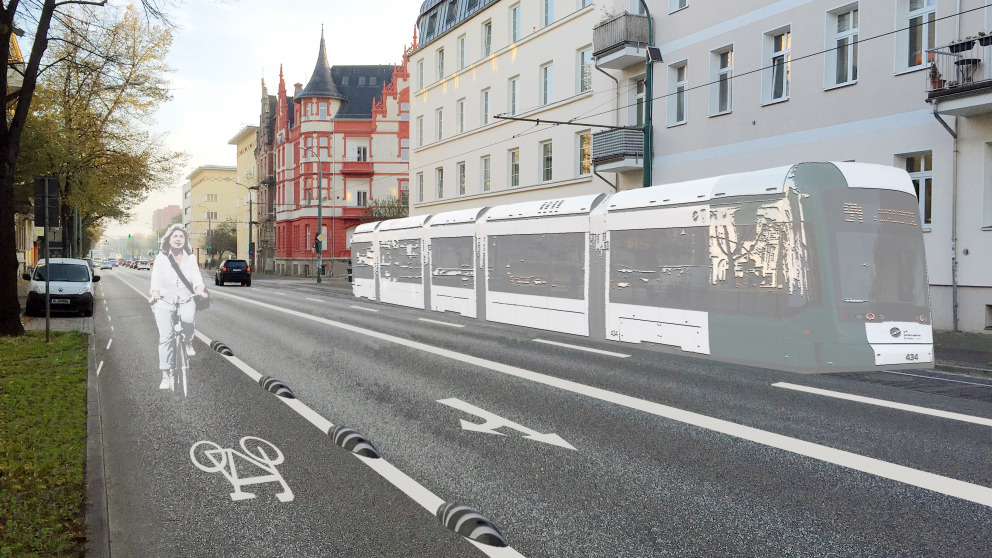Reorganisation of traffic on Potsdam’s Zeppelinstraße garners more criticism than praise
24.10.2018
Due to excessive air pollution, in July 2017 the City of Potsdam reallocated space on the very busy Zeppelinstraße in an attempt to reduce car traffic and encourage people to walk, cycle and use public transport. While they welcome the fact that this measure has made cycling safer, participants in an online survey conducted by the IASS are critical of other effects, claiming that life has become more difficult for commuters, and air and noise pollution have only been reduced in a small area – to the detriment of side streets.

The survey was conducted in two rounds: the first one a month before the implementation of the traffic measure and the second one six months after. Of the approximately 3,500 people surveyed in each round, 800 participated in both. “The survey is important, because it's only by gauging how the local population perceives the traffic measure on Zeppelinstraße and to what extent they are willing to change their mobility behaviour that we will be able to design a successful mobility transition. And the results are also significant beyond the Potsdam context, since many other German cities are facing the prospect of similar traffic measures or even diesel bans due to excessive air pollution,” says Erika von Schneidemesser, Project Leader at the IASS.
Praise for bicycle lane
Only a small fraction of respondents agree in principle that the measure is an effective way to improve air quality. While many people from the surrounding municipalities are unhappy about the traffic restrictions, residents of Potsdam itself are full of praise for the new bicycle lane and the decision to separate it from the footpath.
Despite the very low overall support for this particular traffic measure, almost half of the respondents are in favour of investments in measures to reduce car traffic. And 75 per cent of those surveyed – including people who are against the Zeppelinstraße measure – believe that the City of Potsdam should give high or very high priority to environmental protection in other areas as well and provide the necessary funds.
Question mark over whether measure benefits air quality
Local citizens want cleaner air, but they expect that this measure will just shift traffic to side streets without improving air quality. Many Potsdam residents are demanding stricter parking and speed controls for cars, citing the ruthless behaviour of some commuters. In addition to a safer infrastructure for cycling, they are also calling for regular measurements of pollutant concentrations on side streets.
Communication of traffic measures is vital
The car is still most people’s preferred mode of transport. That said, 39 per cent of respondents answered “Yes” or “Maybe” to the question of whether they would be willing to use public transport more regularly in future. And 49 per cent of respondents expressed a willingness to get on their bikes more often. So there is a clear need for action to encourage this target group to make the change to environmentally friendly modes of transport. The respondents would also appreciate it if the objectives of alternative mobility options were communicated in a clear and understandable way. And they would like to be better informed about air quality in Potsdam.
A decision on the future routing of traffic on Zeppelinstraße has yet to be taken, and this subject will once more be on the agenda at the upcoming meetings of the Committee on Urban Development, Construction, and Traffic.
The survey was conducted and funded by the IASS. Its content and dissemination were coordinated in cooperation with the Potsdam mobility campaign “Besser Mobil. Besser Leben”. The survey results were published in the brochure “Mobilität, Luftqualität und nachhaltige Städte”.
Contact
